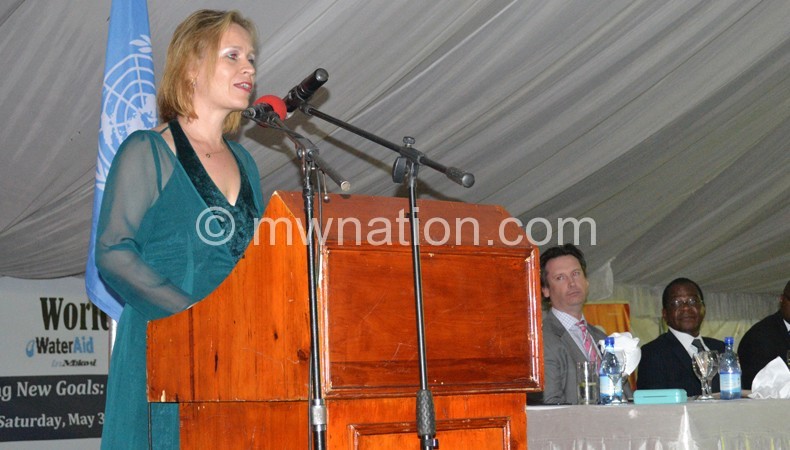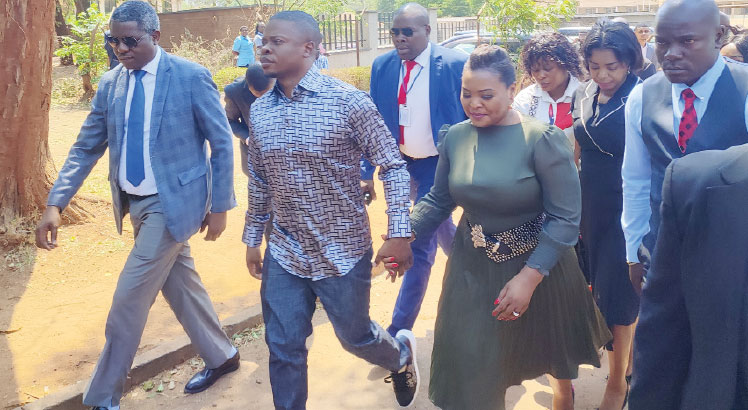Malawians dissect development malaise

Malawi’s lack of transformational leadership, low levels of transparency and accountability as well as politicisation of the development agenda are among major reasons the country remains buried in poverty, according to a report.
The report—which is the product of the first phase of consultations on the Malawi Post 2015 Development Agenda—is a collaboration of the Malawi Government and the local United Nations Country Team.
The partners commissioned Development Consulting Associates (DEVCAS) to undertake the first stage of consultations in 2013 with the report as an output.
The primary aim of the consultations was to stimulate an inclusive, bottom-up and participatory debate on a post-2015 development agenda regarding the “Future We Want”.
The new global policy architecture is expected to replace Millennium Development Goals (MDGs) agreed in 2000 with the overall aim of halving poverty by next year.
The consultative sessions took place both at national and district levels, targeting central government decision makers, parliamentarians, political parties, civil society organisations, private sector representatives, local government authorities, traditional leaders, community-based organisations, faith-based organisations, women, youths, children, people with disabilities, those living with HIV and Aids, the elderly, orphans, divorced and widowed women as well as other vulnerable groups.
The survey asked people to answer the questions “what people wanted to see change or improve in the next 10 years or so” and “what is the one most important thing for Malawi in the next 10 years or so?”
According to the report, Malawians want leaders, at all levels, who are visionary and who could galvanise national resources towards long-term development.
It quoted a civil society organisation (CSO) activist as saying: “Malawi lacks a long-term national vision and development policies; and strategies are more often associated with particular regimes or individuals, as such they are short-lived and lack continuity”.
In general, there are 12 areas Malawians want improvements in if the country is to develop.
These, according to the report, include: governance and accountability, infrastructure development, agriculture development and food security, access to and quality education, health service delivery, private sector development; environment, natural resource management and climate change; science, technology and communication; HIV and Aids, capacity development, gender equality and women’s empowerment; population dynamics and development.
On transparency and accountability, the report said Malawi has a high patronage culture, which leads to victimisation of individuals by the State.
“Transparency and accountability within the public sector has deteriorated due to interference by political interests. Laid-down processes by government systems that could save money for the country need to be followed. Current out-of-court settlements due to improper dismissals are wasteful and need to be curtailed,” reads the report in part.
It also noted that a key challenge facing Malawi was politicisation of the development agenda which, it said, creates imbalances between political leadership and policy continuity, leading to policy reversals or abandonments.
Speaking at the second phase of the Post 2015 national consultative meeting in Lilongwe on Wednesday, UN resident coordinator Mia Seppo said the views expressed at the consultations were important for thinking through the implementation of the Post 2015 Agenda and national priorities in the Malawi Growth and Development Strategy (MGDS).
“You are, therefore, encouraged to share lessons learnt and insights on challenges you have encountered when it comes to delivering policy and growth for all as well as share your views on how inclusive growth and development can be achieved from global policy and national priorities,” Seppo said.
On his part, principal secretary in the Ministry of Local Government and Rural Development Kester Kaphaizi said the second round of consultations has been planned to evolve around active involvement and engagement of the newly elected councillors and the leadership at the district and community levels for the inclusion and accountability of duty bearers fostering the rights of local communities.





